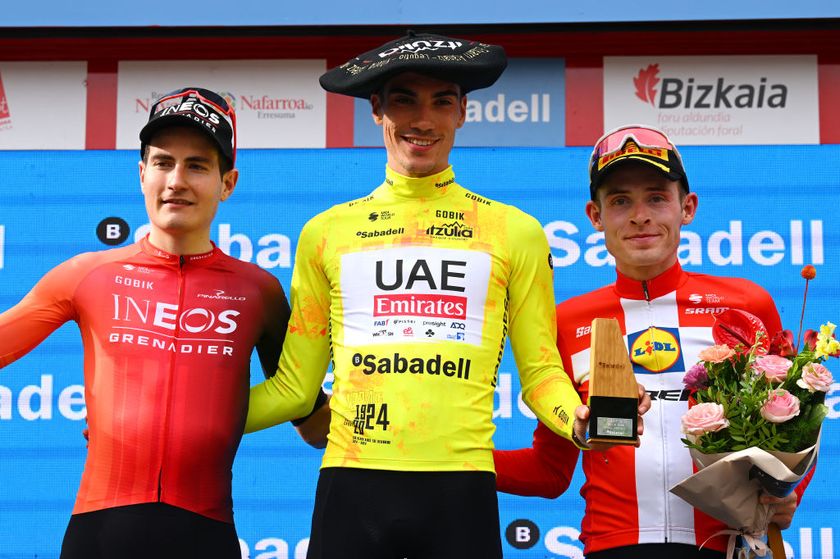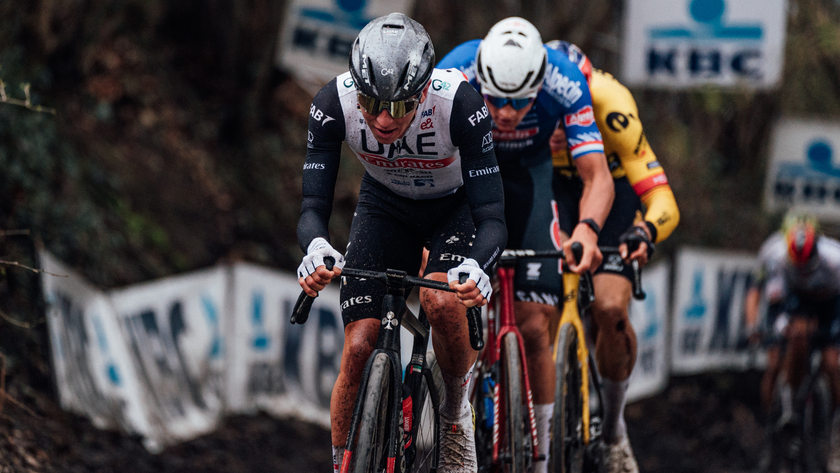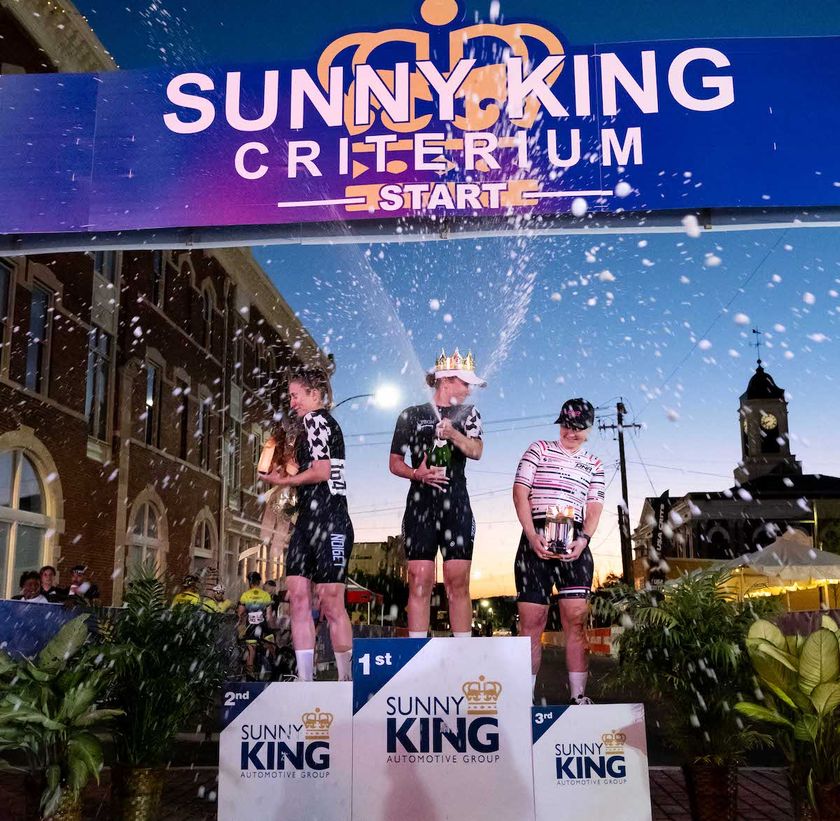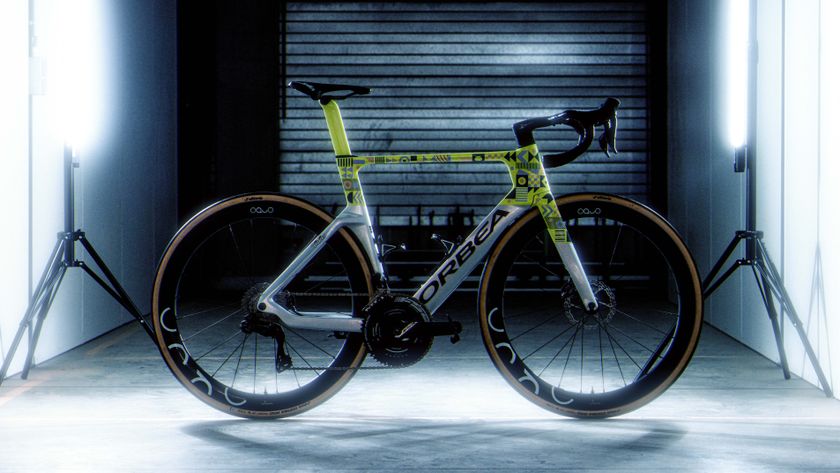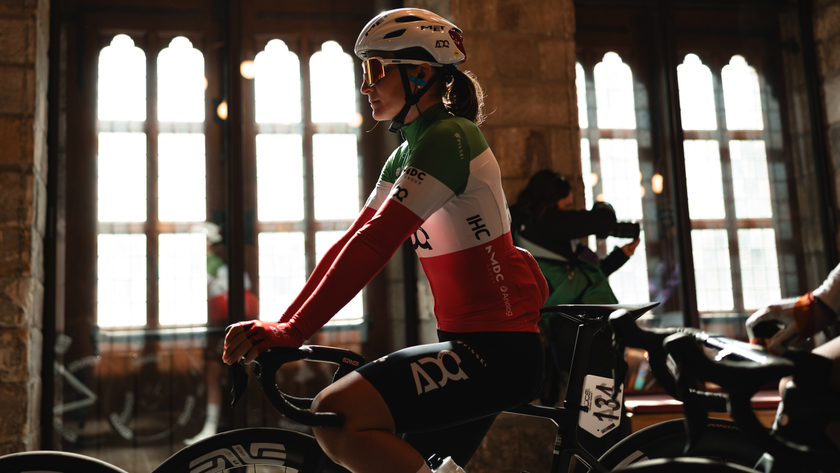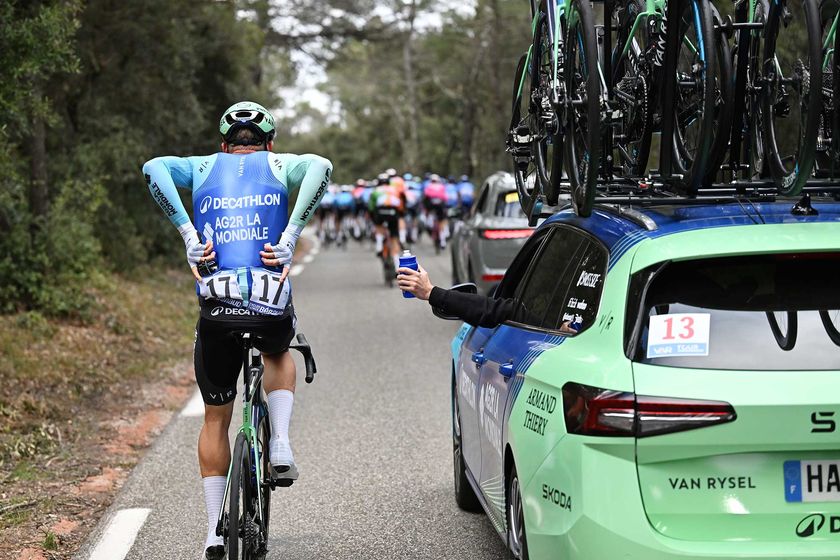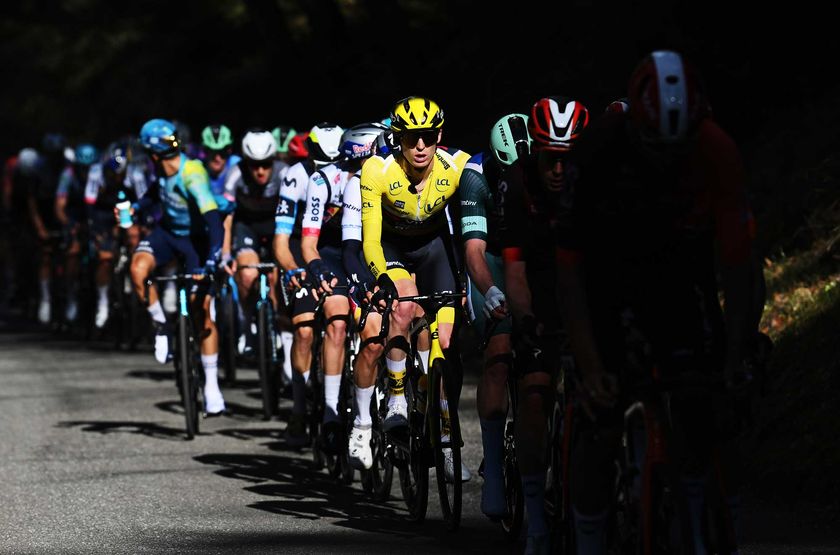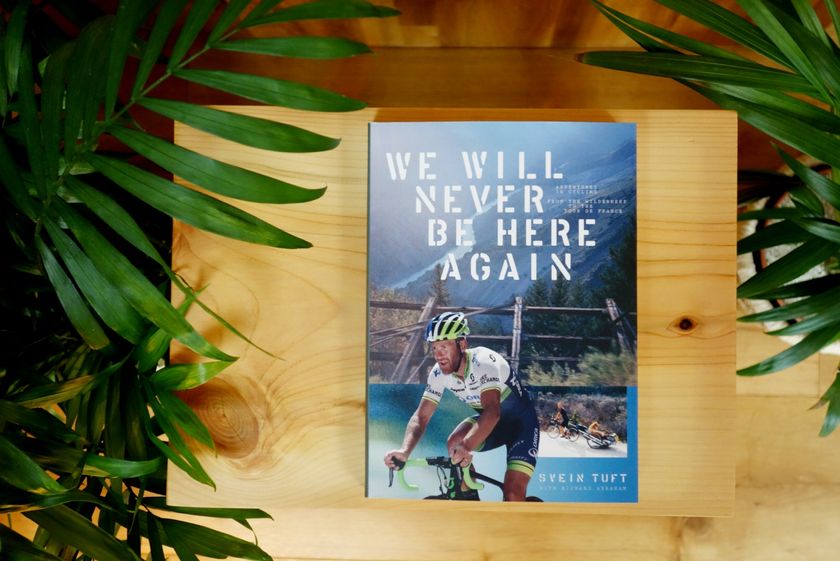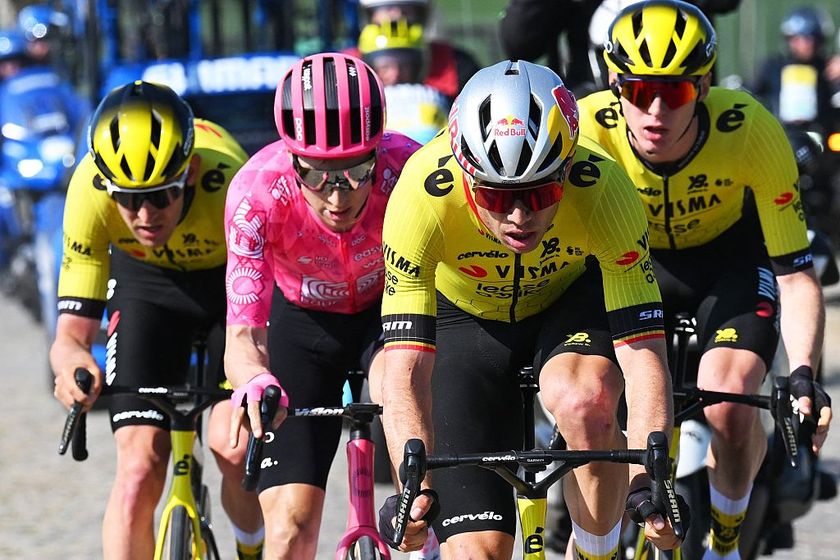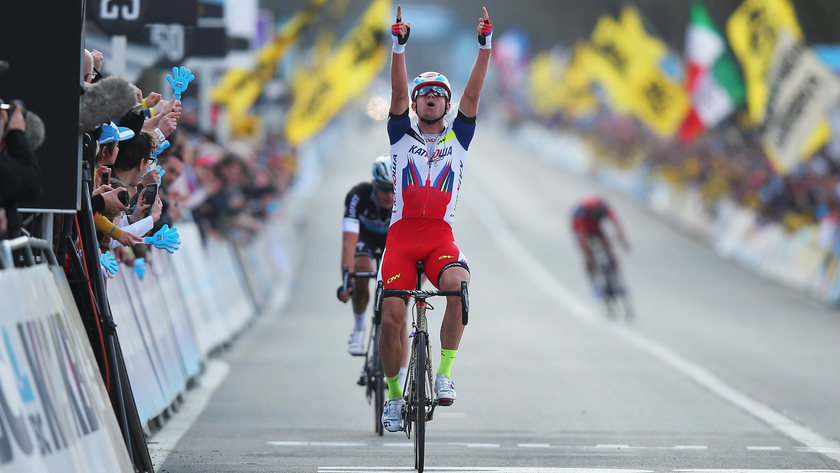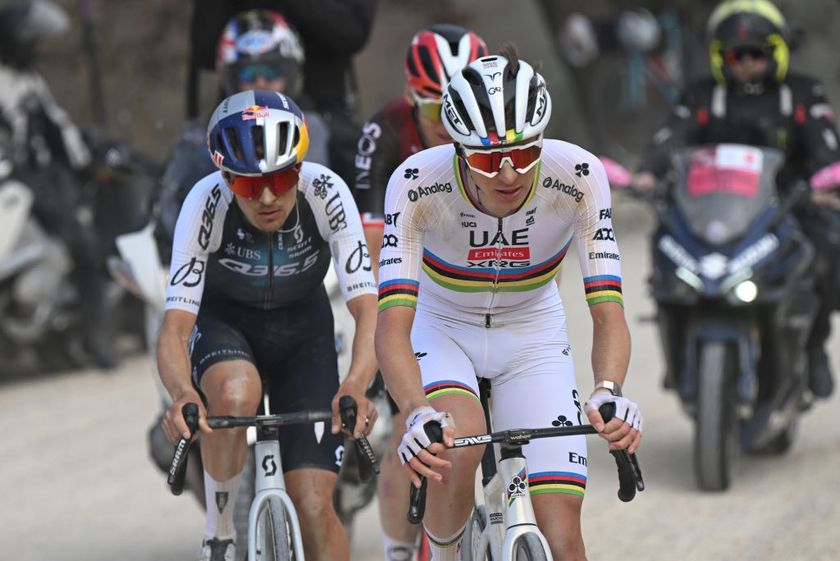Spinning in (mostly) circles at the Tour de France
Most Pro Tour teams are somewhat limited in their choice of equipment by their sponsorship...





























Race tech: Tour de France, July 13, 2008
Spinning in (mostly) circles at the Tour de France
Army of wheels for Team Columbia
Most Pro Tour teams are somewhat limited in their choice of equipment by their sponsorship agreements. While there are always obvious exceptions to the rule, a few squads instead prefer to use their own cash in certain situations in order to gain ultimate freedom. For example, CSC-Saxo Bank purchases all of its Shimano componentry to eliminate any conflicts with its long-time drivetrain sponsor, FSA. Even so, it's still all Dura-Ace all the way (save for the cranksets and Zipp wheels) and it's no surprise that none of the team bikes were equipped with the latest Dura-Ace 7900 iteration at this year's Tour.
Alternatively, Team Columbia foregoes an official wheel sponsor such that its riders can choose from any number of different wheels come race day. We originally thought the team would switch to Zipp after last year's Tour but we counted no fewer than six different wheel models on team bikes just at the start of stage 8: race leader Kim Kirchen sported Zipp 404 rims built on to standard Dura-Ace hubs; sprinter Gerald Ciolek departed with CarbonSports Lightweights; Marcus Burghartdt used HED Stingers; Kanstantsin Siutsou's Zipp 404 rims were laced to American Classic hubs; and both deep and shallow versions of Shimano's Dura-Ace carbon wheelsets were littered about and mounted on spare bikes atop the team cars.
While this strategy obviously comes at a much higher cost for Team Columbia, it's hard to argue with the results. The team finished 1-2 in Saturday's rainy stage 8 sprint finale with Mark Cavendish in first and Ciolek second. Maillot jaune Kirchen finished safely in the main bunch and reinforced Columbia's first-place standing in the team classification.
So is it all worth it? Apparently so.
Get The Leadout Newsletter
The latest race content, interviews, features, reviews and expert buying guides, direct to your inbox!
Non-round chainrings making headway in the pro ranks
We once counted on CSC-Saxo Bank veteran Bobby Julich being the sole rider in the peloton using non-round rings but even though he wasn't included on the team's Tour squad this year, the total number of riders so-equipped has still doubled from one to two.
Julich's preferred O.symetric brand is now represented by Agritubel's Geoffrey Lequatre while his CSC-Saxo Bank teammate, Carlos Sastre, has also jumped on the non-round bandwagon with Rotor's Q-Rings from his native Spain. Sastre had them mounted on both his primary and spare bikes this year after successfully testing them himself and apparently receiving the 'ok' from his team to use them in competition. Rotor actually claims a number of Pro Tour riders use its rings in training but aren't allowed to use them when it counts (we can personally vouch to include Garmin-Slipstream's Magnus Backstedt in that category). Even so, Sastre's Q-Rings are stealthily finished in anodized black instead of the usual champagne hue of production bits and all of the Rotor logos have been covered over.
Both Rotor and O.symetric claim their rings provide rather heady physiological advantages, namely increased power coupled with reduced exertion (otherwise known as free speed), although the Rotor design is notably less radically shaped than O.symetric's 'harmonic' form.
Either way, both Sastre and Lequatre have likely gone up against a fair bit of sponsor resistance to run their preferred equipment so whether the performance gain is real or imagined, each of them feels it's well worth the effort.
A closer look at Quick Step's new Specialized Roval-Campagnolo hybrid wheels
Specialized announced back in January that its Quick.Step team would at last be rolling on its in-house Roval wheelsets this season along with a few others built with "Specialized-engineered hubs and spoking patterns alongside Campagnolo-engineered rims and spokes/nipples systems."
As it turns out, the latter category is apparently limited only to carbon tubular wheels like the one we spotted to Stijn Devolder's machine at the start of stage 7. Devolder's rear wheel was labeled as a 'Roval Alpiniste SL Carbon' (a production model) and indeed used the (near) production-spec SL hub and DT Aerolite spokes. However, the rim is clearly borrowed from Campagnolo and the 24-hole spoke lacing was a standard 1:1 two-cross/radial pattern instead of Specialized's 2:1 configuration.
Up front, it looked like Devolder was running a tubular version of Specialized's new 2009 aluminum wheel, complete with milled-out rim, carbon-bodied hub and exposed spoke nipples. We found the matching rear on a teammate's bike the morning of stage 8 and in spite of Specialized's claims, that one used a standard 1:1 lacing pattern as well.
